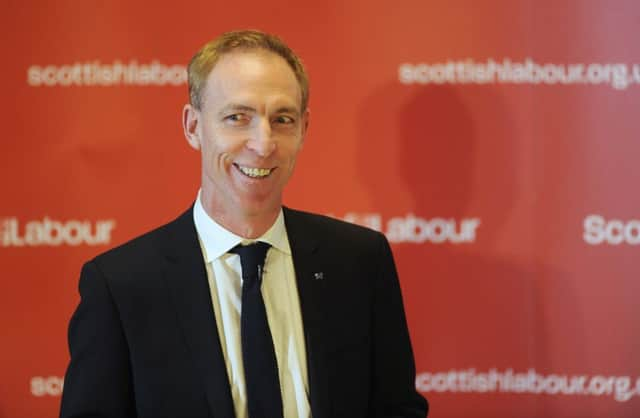Jim Murphy plans Edinburgh-Glasgow ‘powerhouse’


Scottish Labour leader Jim Murphy will unveil the plan today as Scotland’s two biggest cities demand the ability to keep a large proportion of the taxes they raise – including income tax – and create new levies to generate economic growth.
FOLLOW US
SCOTSMAN TABLET AND MOBILE APPS
At a conference in Glasgow to launch the UK Core Cities Charter, Mr Murphy will reveal he is to ask the leaders of both city councils to come up with proposals for a twin city plan for the Central Belt.
Advertisement
Hide AdAdvertisement
Hide AdThe demands from the group, which represent Britain’s ten largest cities outside London, include devolving more powers and tax revenues from Westminster and Holyrood. The group’s charter, which it has billed as a “Magna Carta for the 21st century” and is based on a report by the ResPublica think tank, also calls for the creation of a devolution agency to ensure power is passed down to local communities.
It includes a commitment by the cities themselves to devolve power to communities within their own boundaries.
While Glasgow is the only Scottish city officially part of the Core Cities group, Edinburgh and Aberdeen will also be represented at the conference.
Mr Murphy is set to say: “I want to make sure the same energetic approach to cities shown across the UK by the Core Cities Group and the political leadership of cities is shared across Scotland.
“I want to turn our twin cities of Edinburgh and Glasgow into the economic powerhouse it should be, an economic hub to rival London, Manchester and other city regions across the UK.” Labour leader of Edinburgh City Council Andrew Burns told The Scotsman that a twin city powerhouse in Scotland could “compete with London”.
He said: “I am already holding regular meetings with Glasgow leader Gordon Matheson on a range of issues, so stepping up the co-operation between the two cities seems to be the natural thing to do.
“It will allow us to work closely together on issues like the HS2 high speed rail not stopping in the north of England but coming to Glasgow and Edinburgh.”
He said new taxation powers were “an essential” part of devolving to the cities. Mr Burns said: “We have already proposed a tourism tax in Edinburgh so we want the power to be able to create new taxes, but we also want to be able to keep some of the taxes raised in our cities.
Advertisement
Hide AdAdvertisement
Hide Ad“This is about rebalancing local and central government, not asking for more money. At the moment, we only raise 20 per cent of what we spend and we want responsibility for a much higher proportion.”
He added: “We are only asking for what Holyrood has already asked from Westminster. But for us it is no good if the transfer of powers stops at Holyrood.”
The conference comes amid a continuing row between the Convention of Scottish Local Authorities (Cosla) and Scottish Government ministers over demands that councils agree to a minimum number of teachers or lose funding. Cosla president David O’Neil has accused the government of “trying to micromanage” councils.
Glasgow’s Labour council leader Mr Matheson said the centralising policies of the SNP had made the need to devolve to cities more urgent. He said: “A centralising, power-grabbing Scottish Government is as much a barrier to achieving optimal economic growth and tackling inequality as an overbearing Whitehall. Merely transferring powers between one parliament and another does not advance the cities agenda.
“All political parties in Scotland should back this charter and urgently commit to devolving many existing and new Smith Commission powers to Scotland’s major cities and communities, starting with Glasgow, which is best placed to benefit.”
In his speech, infrastructure and cities secretary Keith Brown will call for a cities convention.
He will say: “The Scottish Government’s approach is one of partnership with local government – it is an approach that varies substantially from that taken in some other parts of the UK and is based on a shared vision of strengthened community planning, engagement and empowerment.
“But our approach to devolution does not stop at local authority level and through, for example, the Community Empowerment Bill, we want to help shift the balance of power more towards communities.
Advertisement
Hide AdAdvertisement
Hide Ad“Initiatives such as the Scottish Rural Parliament, which met for the first time last November, and our action to ensure island communities benefit from the revenue of the Crown Estate, demonstrate our commitment to subsidiarity.”
Core Cities chairman Sir Richard Leese said: “In the 800th anniversary year of Magna Carta, we launch our own radical ‘Modern Charter for Local Freedom’ designed to set out the powers our great cities need to create jobs, build houses and improve lives.”